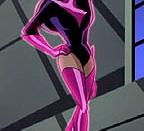In Plato's classic, the Republic, Socrates is challenged by Glaucon and Adeimantus to prove justice is better than injustice. In doing so, Socrates must prove that justice is good in itself, rather than for its eternal rewards. Glaucon believes that it is inherently better to be unjust rather then just; one can acquire greater goods and make more profit my being unjust. He argues that the only reason one would be just is for eternal rewards. To better illustrate Glaucon's argument lets look at the Prisonner's Dilemma. In this hypothetical situation, we are presented with four different inflicting/suffering scenarios. Following Glaucon's theory of justice, which states that it is almost always better to inflict injustice rather than suffer injustice, I would rank the scenarios in this order: First I would choose B, for in this scenario I am inflicting the greatest injustice and not suffering at all. Then I would choose D because in this scenario I am neither inflicting injustice nor suffering injustice.
Third I would choose A, though in this scenario I am inflicting injustice, I am also suffering it as well. My fourth and final ranking would go to C because in this scenario I am suffering injustice but not inflicting any. If we are to follow Socrates' theory of justice then I would rank them in this order: First I would choose D, for in this scenario there is no inflicting of injustice, and no suffering. Then I would choose C, in this scenario I am suffering injustice. This is second because I am not inflicting any injustice. Now here is where it becomes a little difficult. In scenarios A and B, I am inflicting injustice, though the severities of the injustices are different, it is still injustice. In scenario A I am...


